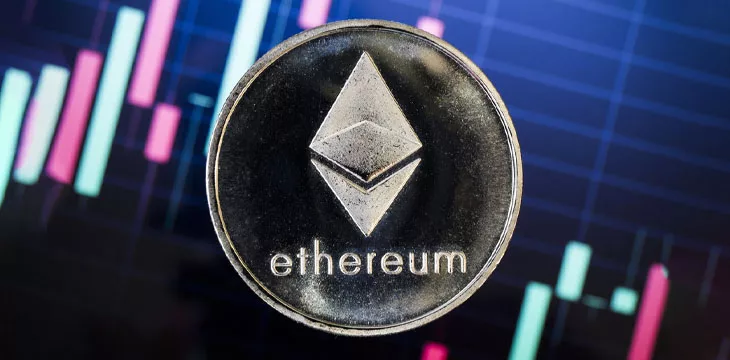Pulse of Information
Your source for the latest insights and updates.
ETH and the Quest for Digital Gold
Discover how Ethereum is challenging Bitcoin's reign as digital gold and shaping the future of finance. Join the quest for value!
Understanding Ethereum: The Journey to Becoming Digital Gold
Understanding Ethereum is crucial in today's digital economy, especially as it continues to gain recognition as a viable alternative to traditional forms of currency and investment. Initially created as a platform for decentralized applications (dApps), Ethereum has evolved significantly since its launch in 2015, enabling the creation and execution of smart contracts. These self-executing contracts are pivotal in validating transactions without the need for intermediaries, making Ethereum a cornerstone of the blockchain ecosystem.
As investors and enthusiasts alike explore the concept of digital gold, Ethereum stands out for its unique functionalities beyond mere transactional capabilities. Unlike Bitcoin, which is primarily viewed as a store of value, Ethereum's versatility allows it to support a wide array of decentralized finance (DeFi) applications and non-fungible tokens (NFTs). This adaptability not only enhances its potential use cases but also positions Ethereum as a critical player in the future of digital finance.

ETH vs. Bitcoin: Who Will Claim the Title of Digital Gold?
Ethereum (ETH) and Bitcoin (BTC) are often at the forefront of discussions about the digital currency landscape, with both coins vying for the title of digital gold. While Bitcoin was designed primarily as a store of value, Ethereum's versatility allows for a wide range of applications, including smart contracts and decentralized finance (DeFi) solutions. This technical flexibility positions Ethereum as a potential candidate for the digital gold title, particularly among tech-savvy investors who are looking for more than just a passive investment. However, Bitcoin's establishment as the first cryptocurrency gives it a strong edge, often leading investors to see it as the ultimate hedge against inflation.
Both ETH and BTC have their unique attributes that could lead them to claim the title of digital gold. For instance, Bitcoin's capped supply of 21 million coins creates scarcity, a key characteristic that traditionally underpins the value of gold. Meanwhile, Ethereum's shifting nature, with its plans for scalability and sustainable energy consumption, appeals to a new generation concerned about environmental impacts. The competition between these two cryptocurrencies will likely intensify, with each appealing to different investor philosophies. Ultimately, the question of who will claim the title of digital gold may boil down to evolving market needs and the perspectives of investors around the globe.
The Future of Ethereum: Can It Establish Itself as the New Standard for Digital Gold?
The evolution of blockchain technology has brought forth various cryptocurrencies, with Ethereum emerging as a frontrunner. Unlike Bitcoin, which is often referred to as 'digital gold' due to its limited supply and store of value characteristics, Ethereum offers more than just a currency. Its capability to support decentralized applications and smart contracts expands its utility beyond mere transactions. As Ethereum continues to develop its layer 2 solutions and the transition to Ethereum 2.0, many are questioning whether it can solidify its position as the new standard for digital gold. With increasing institutional interest and potential mainstream adoption, Ethereum's future prospects look promising.
A significant factor in establishing Ethereum as the new standard for digital gold is its scalability and energy efficiency. The shift to a proof-of-stake mechanism not only reduces its environmental impact but also enhances transaction speeds and lower fees, making it a more attractive option for users and investors alike. Furthermore, as Ethereum expands its DeFi ecosystem, its use cases continue to proliferate, potentially mimicking the adoption trajectory of gold as a reliable asset. If Ethereum can maintain its innovative edge and foster a robust community, the possibility of it redefining the concept of digital value is more tangible than ever.